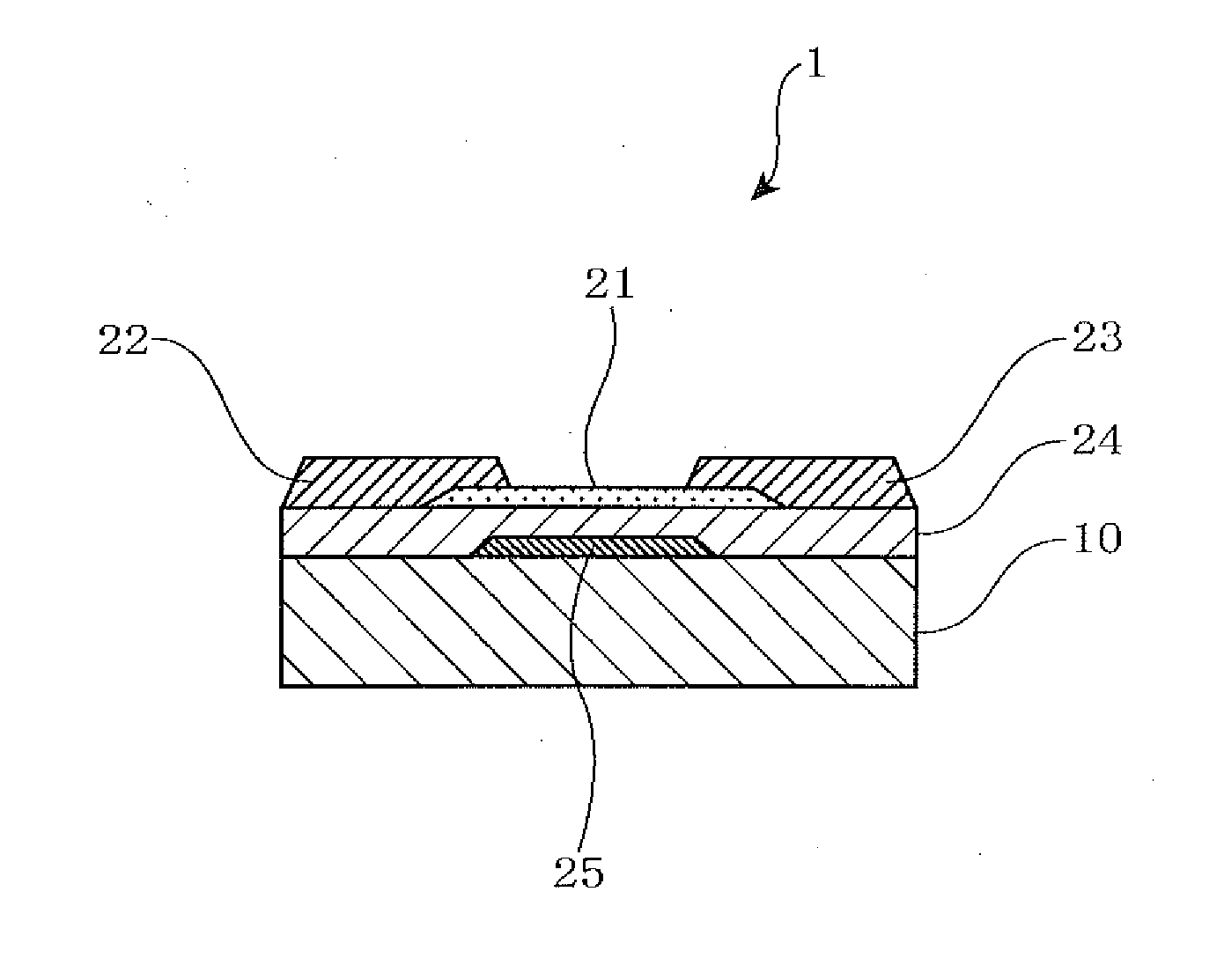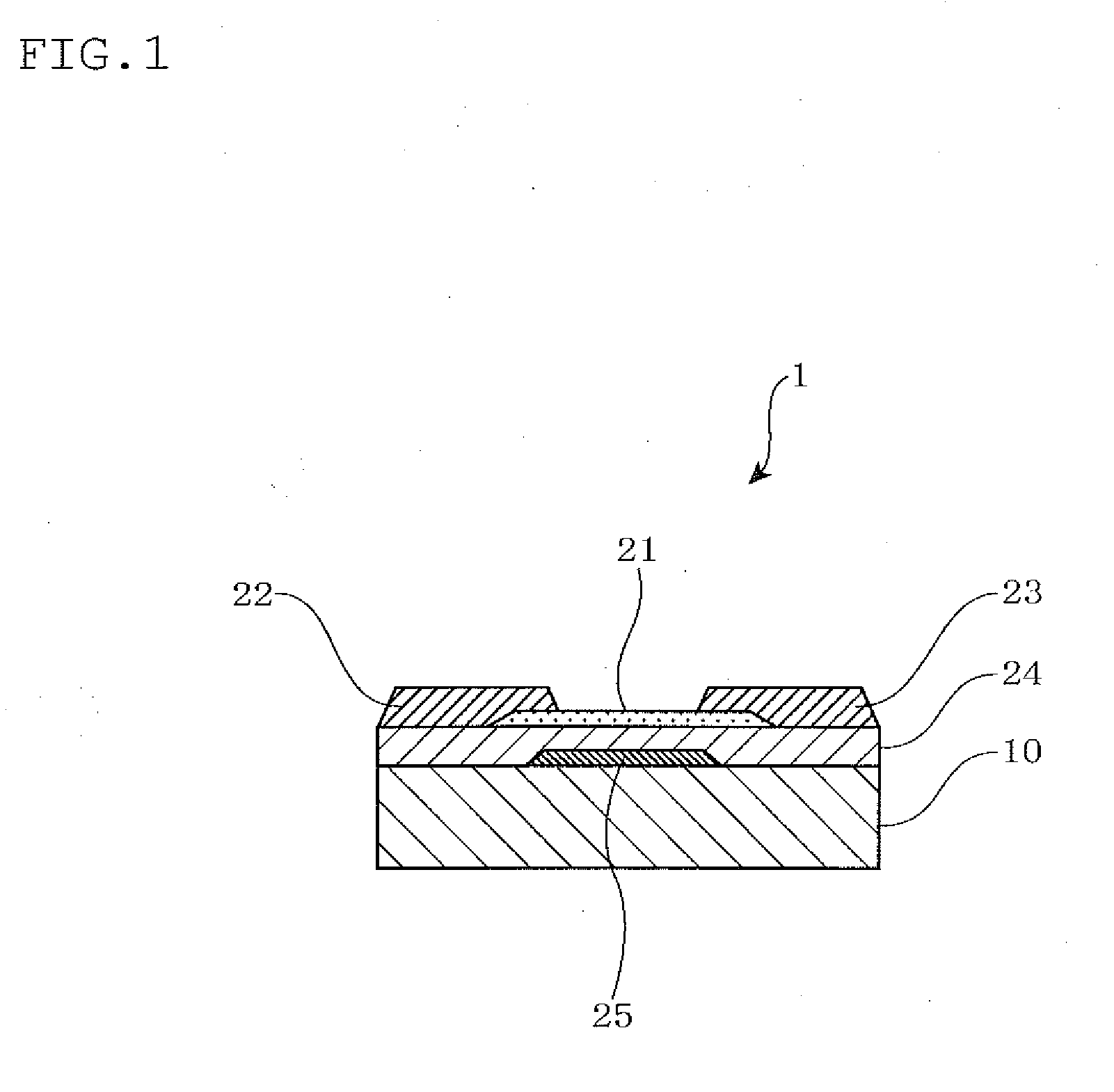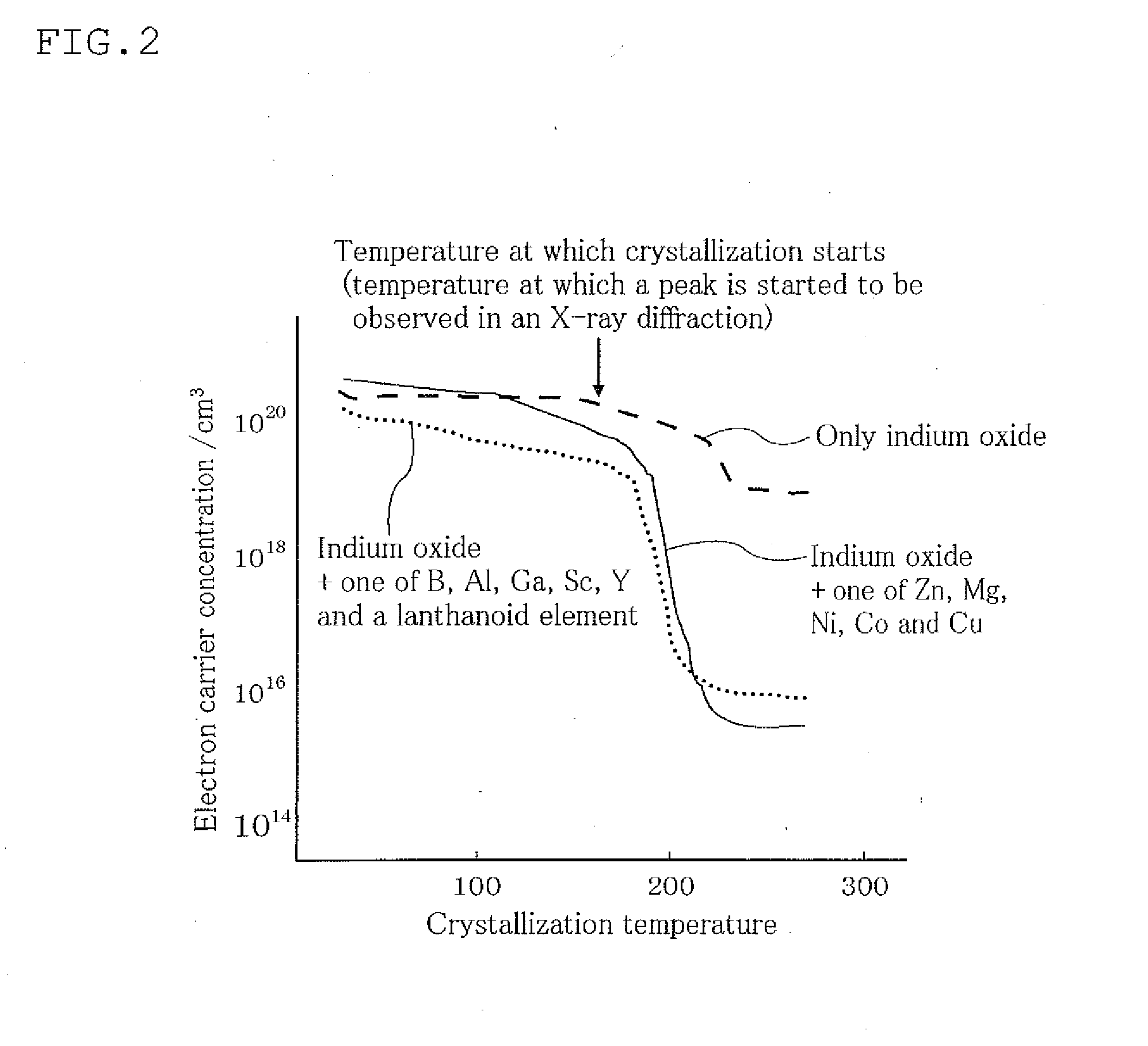Sputtering target, oxide semiconductor film and semiconductor device
a semiconductor film and target technology, applied in the direction of conductive materials, aluminum oxides/hydroxides, germanium dioxide, etc., can solve the problems of difficult to render the electron conductivity small, easy oxygen deficiency, and inability to show stable semiconductor properties of igzo semiconductors at high temperatures
- Summary
- Abstract
- Description
- Claims
- Application Information
AI Technical Summary
Benefits of technology
Problems solved by technology
Method used
Image
Examples
preparation example 1
of a Field-Effect Thin Film Transistor
[0235]Next, the preparation example of a field-effect thin film transistor 1 using the above-mentioned crystalline oxide 21 will be explained with reference to the drawings.
[0236]FIG. 6 is a schematic view of essential parts for explaining the method for producing a field-effect thin film transistor which is a semiconductor device according to one embodiment in the second aspect of the invention, in which (a) is a cross-sectional view showing the state in which a gate electrode is formed, (b) is a cross-sectional view showing the state in which a gate-insulating film is formed, and (c) is a cross-sectional view showing the state in which a crystalline oxide is formed.
[0237]As shown in FIG. 6(a), on a glass substrate 10, indium oxide containing tin oxide (10 wt %)(ITO) was formed into a film by a sputtering method with a substrate temperature being at 200° C. Subsequently, a photoresist was applied, and patterns of a gate electrode 25 and a wire ...
preparation example 2
of the Field-Effect Thin Film Transistor
[0257]FIG. 8 is a schematic cross-sectional view of a top-gate type field-effect thin film transistor which is a semiconductor device according to one embodiment in the second aspect of the invention.
[0258]In FIG. 8, a field-effect thin film transistor 1a of this preparation example is a top-gate thin film transistor, and is used in a TFT substrate or the like.
[0259]On the glass substrate 10, an IZO (registered trademark) with a large electroconductivity was stacked in a thickness of 40 nm by a sputtering film forming method. Then, a photoresist was applied, and by using a photomask, patterns of the source electrode 22, the drain electrode 23 and the wiring were exposed to light, followed by development with a developer. Then, by etching using a PAN-based etching solution (91.4 wt % of phosphoric acid, 3.3 wt % of nitric acid, and 5.3 wt % of acetic acid) of 45° C., the source electrode 22, the drain electrode 23 and the wiring were formed.
[02...
preparation example 3
of the Field-Effect Thin Film Transistor
[0264]The field-effect thin film transistor 1a of this preparation example is a top-gate thin film transistor as shown in FIG. 8.
[0265]At first, on the glass substrate 10, Au and IZO with a high electroconductivity (containing 10.7 wt % of zinc oxide) were respectively formed into a thickness of 50 nm by a sputtering film-forming method (Ar: 100%, total pressure: 0.3 Pa). Then, a photoresist was applied, and by using a photomask, patterns of the source electrode 22, the drain electrode 23 and the wiring were exposed to light, followed by development with a developer. Then, by etching with a PAN-based etching solution of 45° C. (91.4 wt % of phosphoric acid, 3.3 wt % of nitric acid and 5.3 wt % of acetic acid), the source electrode 22, the drain electrode 23 and the wiring were formed.
[0266]Next, on the glass substrate 10, an amorphous zinc oxide (5 at %) / indium oxide (95 at %) film to be used as the channel layer was formed in a thickness of 1...
PUM
| Property | Measurement | Unit |
|---|---|---|
| Fraction | aaaaa | aaaaa |
| Fraction | aaaaa | aaaaa |
| Fraction | aaaaa | aaaaa |
Abstract
Description
Claims
Application Information
 Login to View More
Login to View More - R&D
- Intellectual Property
- Life Sciences
- Materials
- Tech Scout
- Unparalleled Data Quality
- Higher Quality Content
- 60% Fewer Hallucinations
Browse by: Latest US Patents, China's latest patents, Technical Efficacy Thesaurus, Application Domain, Technology Topic, Popular Technical Reports.
© 2025 PatSnap. All rights reserved.Legal|Privacy policy|Modern Slavery Act Transparency Statement|Sitemap|About US| Contact US: help@patsnap.com



